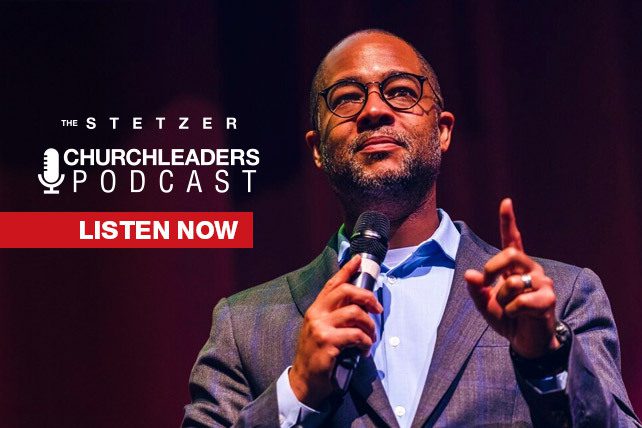Dr. Bryan Loritts is teaching pastor at The Summit Church and president of the Kainos Movement, an organization committed to seeing the multiethnic church become the new normal. He is also the author of several books, including his latest, “The Dad Difference: The Four Most Important Gifts You Can Give To Your Kids.”
Other Ways to Listen to This Podcast With Bryan Loritts
► Listen on Apple
► Listen on Spotify
► Listen on Stitcher
► Listen on YouTube
Key Questions for Bryan Loritts
-What are some misconceptions about fatherhood that you had when you first became a dad?
-What encouragement can you give to church leaders who are struggling with fatherhood?
-People are heavily critiquing patriarchy and gendered language, which can impact the way that they think about God and even church leaders. How can you help pastors think through that reality and engage with it well?
-What does it look like when a church is led by somebody who does not have the heart of a spiritual father versus someone who does?
Key Quotes From Bryan Loritts
“This book is not about how awesome of a dad I am. I’ve got three boys, 21, 19 and 17, and I have made far more than my share of mistakes. So when I talk about ‘the dad difference,’ it is really a book filled with my recollections of how my own dad fathered me.”
“I really do think our perception of God is informed by ‘dad,’ which is why I just really think it’s powerful.”
“Dad was traveling around preaching a lot. I think today one of the things he would say is I was probably gone too much…[but] the great thing about Dad’s role was when he was home, he was completely home and he was all in.”
“My dad led me to faith in Christ. From then on, my dad discipled me and my siblings.”
“Especially when you come from a home where you just saw Dad do it right, you assume it’s a lot easier than what it actually is. That’s a huge misconception.”
“I’ve got three kids with three incredibly different personalities, love languages, and I began to understand Dad’s statement that he used to always make to us growing up that fairness is not sameness.”

